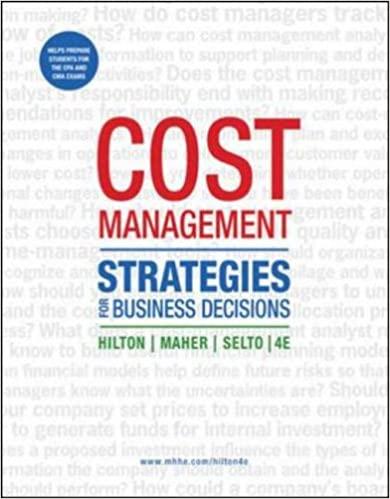Boeing Company is the worlds largest manufacturer of commercial jet airplanes. To meet growing demand, Boeing in
Question:
Boeing Company is the world’s largest manufacturer of commercial jet airplanes. To meet growing demand, Boeing in 1997 decided to more than double its rate of production from approximately 17 to more than 40 planes per month. In March 1999, Boeing reported that this increase in production, which normally would be considered a fortunate turnaround, unfortunately could have cost the airplane manufacturer more than $2.6 billion in 1997-1998 for unnecessary costs. Unexpected delays and disruptions caused these extra costs. Financial analysts on Wall Street predicted that Boeing’s production problems would persist for nearly a year longer (which proved to be true) as the company struggled to “ramp up”
its production level. The next day, after the reports from Boeing and financial analysts, Boeing’s common stock declined 7.6 percent, or $4.12 per share.
Required Hint: Access information about Boeing Company at the SEC’s EDGAR Web site (www.sec.gov/edgar
.shtml).
a. Describe Boeing’s value chain in general terms, as described in the firm’s Form 10-K.
b. What parts of Boeing’s value chain would be affected by doubling its production operations?
Explain how Boeing’s decision to quickly double its production level actually could reduce its profitability.
d. Cost-management support of management’s decision to double output might have saved Boeing and its stockholders a lot of money (and prevented some unflattering publicity). Describe in general terms what support operations you might have anticipated to support Boeing’s doubling of production.
Step by Step Answer:

Cost Management Strategies For Business Decisions
ISBN: 12
4th Edition
Authors: Ronald Hilton, Michael Maher, Frank Selto





